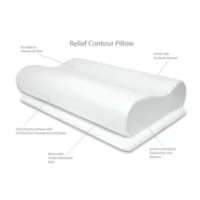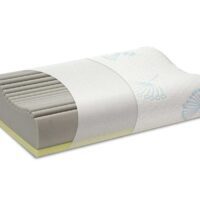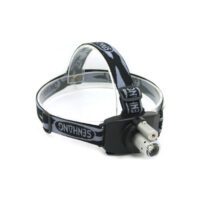Wry Neck
Article by John Miller

Wry Neck
Symptoms, Diagnosis, and Treatment
Wry neck, also known as acute torticollis, strikes with sudden neck stiffness and restricted movement. Sharp pain often radiates to either side or the centre of the neck, accompanied by involuntary muscle spasms as the body’s natural defense. The hallmark symptom is the inability to turn your head or bend your spine sideways.
Diagnosis
Physiotherapists or doctors begin with observing your neck posture and a hands-on examination to pinpoint pain points, assess the joint range of motion, and detect muscle spasms indicative of wry neck.
What Causes a Wry Neck?
Typically, the problem stems from a locked facet joint where the vertebrae get stuck, causing muscle spasms, or from a cervical disc injury that damages the cushioning discs between the bones.
Investigations Recommended
If symptoms persist despite initial treatment, your physio or doctor may advise imaging tests such as X-rays, MRI, or CT scans to uncover issues like facet joint locking or disc degeneration.
How Do You Fix A Wry Neck?
Tailored treatment plans take into account individual symptoms and severity. Medication options include pain relievers, muscle relaxants, and NSAIDs. However, physiotherapy remains the preferred method to accelerate recovery, with physiotherapists evaluating your spine, treating joints and muscles, and prescribing home exercises and management tactics.

The Role of Physiotherapy
Physiotherapy is pivotal for recovery, with treatments customised to the type of neck dysfunction, whether facet-related or discogenic. Manual therapy techniques, muscle stretching, strengthening exercises, and posture correction are all employed to hasten recovery and prevent future incidents.
Benefits of Physiotherapy Treatment
Physiotherapy plays a crucial role in treating wry neck, offering a range of benefits that go beyond mere pain relief. Through a combination of manual therapy, exercises, and education, physiotherapy targets the root causes of wry neck to ensure a thorough recovery and to prevent future occurrences. Here, we expand on the benefits of physiotherapy in the context of wry neck treatment.
Customised Treatment Plans
Physiotherapists tailor treatment plans to each individual’s specific condition and needs. This personalised approach ensures that whether the wry neck is facet joint-related or due to disc issues, the therapy provided is precisely what is needed to address the problem effectively. This customisation extends to exercises and stretches that are designed to target the patient’s specific areas of stiffness and discomfort.
Manual Therapy Techniques
One of the key benefits of physiotherapy is the use of manual therapy techniques. These can include massage, mobilisation, and manipulation, all aimed at relieving pain, improving joint mobility, and reducing muscle tension. For patients with wry neck, these techniques can provide immediate relief from pain and stiffness, making them an essential component of the treatment process.
Strengthening and Stretching Exercises
Physiotherapy for wry neck often involves a series of strengthening and stretching exercises tailored to restore flexibility and strength to the neck muscles. These exercises help to support the neck, improve posture, and prevent the recurrence of symptoms. By following a prescribed exercise regimen, patients can gradually rebuild the strength in their neck muscles, ensuring a faster and more durable recovery.
Posture Correction
Improving posture is another vital benefit of physiotherapy in treating wry neck. Poor posture can contribute to or exacerbate the symptoms of wry neck. Physiotherapists work with patients to correct bad postural habits and teach techniques that promote a healthier alignment of the neck and spine. This not only aids in the recovery from the current episode but also helps to prevent future issues.
Education and Self-Management
A significant part of physiotherapy involves educating patients on their condition and how to manage it effectively at home. This education includes advice on daily activities, ergonomic adjustments to reduce strain on the neck, and strategies to manage pain and stiffness independently. Armed with this knowledge, patients are better equipped to take control of their recovery and reduce the risk of recurrence.
Accelerated Recovery and Prevention
Ultimately, the goal of physiotherapy is to accelerate recovery from wry neck and to prevent future episodes. By addressing the condition from multiple angles, physiotherapy ensures that recovery is not only quick but also comprehensive, reducing the likelihood of chronic issues or recurrence. Patients benefit from an approach that not only treats the symptoms but also strengthens the neck to resist future problems.
In summary, physiotherapy offers a comprehensive, effective, and preventive approach to treating wry neck. With benefits ranging from customised treatment plans and manual therapy techniques to posture correction and patient education, physiotherapy stands out as an essential component of both recovery and long-term health maintenance for those suffering from this condition.
Recovery Expectations
The recovery timeframe can vary. A facet-related issue often shows improvement within days, whereas a discogenic condition may require weeks. The commitment to prescribed physiotherapy and exercises significantly impacts the speed of recovery.
Conclusion
Dealing with neck pain can be distressing and debilitating, but prompt and precise diagnosis, specific investigations, and dedicated treatment, particularly through physiotherapy, pave the way to regaining full mobility and mitigating the chance of recurrence. Central to overcoming wry neck is a treatment regime crafted to your unique situation.
Related Articles
- Effective Cervical Facet Joint Pain Management: This article explains the management of cervical facet joint pain, which is often a contributing factor in wry neck conditions.
- Neck Strengthening – Specific Exercises: Provides detailed exercises for neck strengthening, beneficial for those recovering from wry neck.
- Neck Pain: Discusses various aspects of neck pain, including causes and treatment options, which are closely related to wry neck issues.
- Cervicogenic Dizziness & Cervical Vertigo: Explores the relationship between neck issues and conditions like dizziness and vertigo, which can be relevant for people with wry neck.
- Cervical Radiculopathy: Focuses on neck and posture-related products and FAQs, offering additional support for those dealing with neck conditions like wry neck.
- Whiplash: Articles discussing the symptoms, diagnosis, and treatment of whiplash, a common neck injury often resulting from car accidents.
- Neck Sprain: Information on identifying and treating neck sprains, which are ligament strains in the neck area.
- Text Neck: Insights into the increasingly common issue of text neck, caused by prolonged neck bending due to mobile device usage.
- Disc Bulge: Detailed explanations of spinal disc bulges in the neck region, including causes, symptoms, and treatment options.
- Spondylosis: Articles on cervical spondylosis, a degenerative condition of the neck vertebrae and discs.
- Neck Arm Pain: Information on conditions where neck issues cause referred pain to the arm, including potential causes and treatments.
- Neck Headache: Exploring how neck problems can lead to headaches, including cervicogenic headaches.
- Neck Posture: Advice on maintaining proper neck posture to prevent neck pain and related issues.

































































